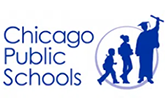The Igbo language, otherwise known as Ibo, is spoken in Nigeria by approximately 18 million people, making it one of the most spoken languages of West Africa. It is part of the Benue-Congo group of Niger-Congo languages. Many believe it originated around the 800s around the Niger and Benue rivers and continued to spread through Nigeria.
Today, Igbo is an official language of Nigeria, although there are others. It is also spoken in Abia, Anambra, Ebonyi, Enugu and Imo, which are Southern Delta states. In Abia, Anambra, Ebonyi, Emugu and Imo, it is the main language spoken for trade and business. It is also used for media and communication methods such as TV and radio. English is still considered the main language of Nigeria while many have not accepted the practice of writing and reading in Igbo. In fact, the Igbo language is often times replaced by Nigerian Pidgin english. Igbo speakers are most often bilingual in English as well.
The first book written in Igbo was Isoama-Ibo in 1857 by Samuel Aiavi Crowther. He was an ex-slave, teacher and linguist. Another notable writer was Albert Chinualumogu Achebe, who was born in the 1930s in the Igbo village of Ogidi, located in southeast Nigeria. He gained popularity in the 1950s because of his novel titled Things Fall Apart. His other works include No Longer at Ease, Arrow of God, A Man of the People and Anthills of Savannah.
Igbo is now written in a form of the Latin alphabet. Because there are so many dialects, it is difficult to have a standard orthography for the Igbo language.
There are several dialects of the Igbo languages, about 30. The Standard Igbo language has been used since 1962 and is a compilation of the Oswerri and Umuahia dialects. Even that it is considered Standard Igbo, it is not fully accepted by those who speak other dialects of the language. Standard Igbo has words from other dialects along with loandwords from other languages.
Standard Igbo has 8 vowels, 30 consonants and 2 tones in the language. There are only two syllable types. The first is a ‘consonant + vowel’ and the second is vowel or syllabic nasal.
In Igbo, there is vowel harmony consisting of two sets of vowels that can be differentiated by pharyngeal cavity size. There are two characteristics in the Igbo consonant system. They are doubly articulated consonants, meaning that a consonant has two places of articulation. The second consonant system is the labialized velars. Labio-labialized consonants include bilabial, labiodental, dental, alveolar, postalveolar, palatal, velar and glottal sounds.
Each syllable in the Igbo language has a tone, whether it is high or low. A high tone has an acute accent while a low tone has a grave accent. The grammar in Igbo is very simple, meaning there are not many prefixes, infixes or suffixes. Nouns in Igbo are simple and do not have specific differentiation between gender, number or case. Verbs are formed by added prefixes and suffixes to verb roots. When creating a verb, one must consider the tense (past, present or future), the aspect (progressive, perfective, durative and inactive), the imperative and the negation. The word order in Igbo is Subject-Verb-Object. Many vocabulary words in Igbo are compounding. Igbo used reduplication and has many loanwords from English along with other African languages.
CIT offers Igbo interpreters and translators with legal, medical and specialty experience, including criminal and civil matters, employee meetings, engineering, patent cases, labor disputes, immigration and more.
Although based in Los Angeles, CIT offers comprehensive Igbo language services including interpretation, translation and transcription, 24 hours a day, 7 days a week, worldwide. Our interpreters and translators are native speakers who have been screened, certified, have provided credentials, field tested, and kept up to date with developments in both English and the Igbo language through means such as lectures, conferences, and travel. CIT’s Igbo language interpreters and translators possess in depth knowledge of the Igbo language, as well as of the culture and history of the Igbo people, allowing them to provide informed and complete interpretation and translation.


No matter what your needs may be, we can and are ready to assist you now. We have translators and interpreters standing by 24/7.

CIT's interpreter is such a rockstar, and it’s so great to have him as a lead interpreter for our Board meetings. About Our Interpreters 
Thank you for always being able to handle emergency interpreting assignments with ease. About Urgent Requests 
Thank you for always being able to handle emergency interpreting assignments with ease. About Urgent Requests 
Your translation rates are more competitive than other language service providers I used in the past. About Pricing 

Professionalism matters at CIT. We respond to request inside 24 hours.







